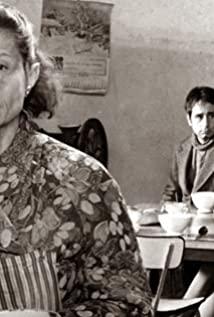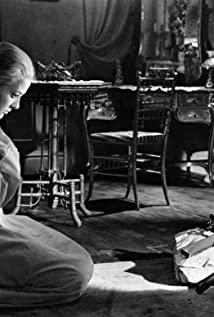Because human beings have a pretentious sense of superiority, they are destined to expand in the spiritual realm, and the emergence of religions has largely eased the spiritual crisis of mankind. Religion is a kind of utilitarian existence, but it at least provides morality for the survival of mankind, and moral restraint provides the best guarantee for the balance of society, but at the same time it also limits the desire of people to the greatest extent. It can be said that religion has been destined to oppose desire and morality from the beginning of its birth. This is reflected all the time in "Velidia", where the opposition between the two directly leads to the bankruptcy of religious belief.
The female protagonist is the embodiment of religious morality both in appearance and in her heart, she is beautiful, pure, kind, and pious. The film also equates the audience’s position with the heroine through the gaze of the lens, so with the development of the movie, the heroine’s fate will always catch the audience’s attention, and through the audience’s substitution, the desire and morality The conflict is reflected in the audience's psychology. Although this is a trick played by movies, in fact, everyone has experienced it in reality.
The uncle expressed his love, but was rejected by the heroine; the heroine helped the poor and spread the love of God, but was betrayed by the poor. The development of the two things is actually very similar. In the definition of religion, love can be lust or oracle. Different definitions of the same essence are based on religious utilitarian considerations. After all, selfish desire hinders the "purity" of an individual, but great love can add points to a religious image. Therefore, the heroine rejected her uncle, but gave the love of religion to everyone (even if everyone does not appreciate it).
It is conditional for the hostess to relieve everyone (work and order are required), which is in line with the social relationship. However, compared with the uncle's love and desperateness, the relief of the hostess is full of various restrictions, and the relief of the hostess is also How much love comes from oneself? At the end of the film, the loss of control and the heroine's crisis caused the heroine to give up her beliefs and start secular entertainment. From this point of view, I am afraid that the heroine herself did not give much love from the heart. The whole relief activity is only derived from the doctrine of religion. The activity itself has a complete religious meaning. Just like praying, it is just one thing. Kind of form. The insatiable greed of the people finally made the female protagonist as a believer incomprehensible, which also illustrates the bankruptcy of religious formalism.
The audience's viewpoint follows the action of the heroine, and feels an absurd farce, but this is more of a part of the worldly sentient beings. The reality of formalism is that the activities of the world are full of selfishness, but a certain high-sounding hat is worn on the head to hide the ugly bald head, and religion/belief is one of the hats. This is similar to the Brazilian director Anselmo Duarte's film "The Promise". Through a farce, it more vividly reflects the role of religion in society. In the current increasingly serious materialization and consumerization, the degradation of religion/belief is even more obvious, but we still need it because the selfish nature of human beings is so insecure. So the old faith dies, and the new faith will emerge again, just as the desperate heroine still chooses to play cards.
View more about Viridiana reviews











